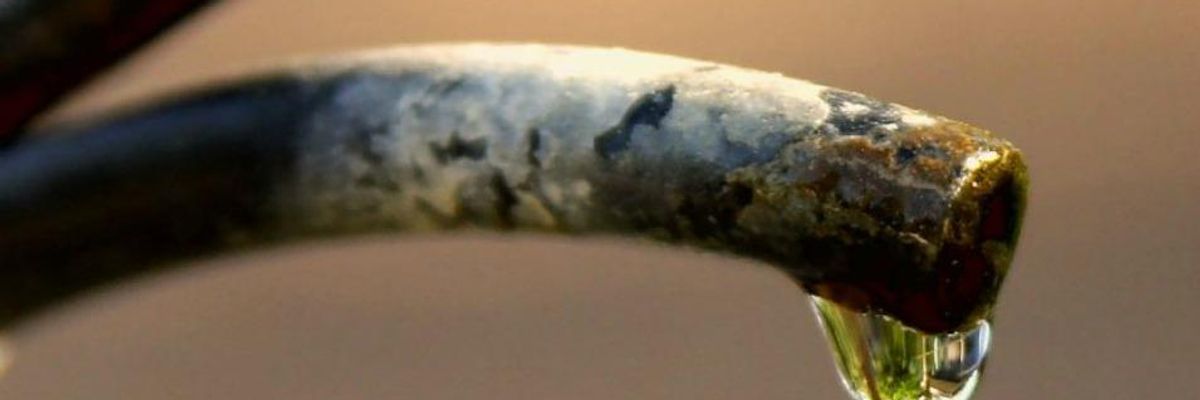The ongoing crisis in Flint, Michigan, shines a spotlight on our nation's water woes. It is an indictment of our broken democracy.
Every day, we hear a new horror story from Flint: Lead poisoning. Brain damage in kids. Legionnaire's disease. Permanently damaged pipes that will cost millions to replace. Water shutoffs for families who refuse to pay for poisoned water, but still rely on it for basic sanitation. Officials who knew about the problem months before it came to light, and lied about it.
Flint's situation is appalling, and unfortunately, the city isn't alone. The spotlight on Flint has brought to light other cities that are struggling with lead and other contamination in their water, most recently Sebring, Ohio. Cities across the country have aging pipes, and while spectacular mismanagement in Flint has worsened their situation, costly repairs are needed in many places to keep the water safe.
This is the time for the federal government to take action and provide the funding that our community water systems desperately need, but the Obama Administration has failed to do so. In fact, the budget Obama delivered to Congress on Tuesday cuts the main source of federal funding for our water infrastructure by 11 percent. This is the latest in a long history of such cuts: federal funding for water infrastructure has been cut back by 74 percent since 1977.
"Following the Flint water crisis, which is emblematic of our national water woes, it is outrageous that the Obama Administration can't be moved to truly step up and deliver the leadership needed to fully fund our water infrastructure," says Food & Water Watch Executive Director Wenonah Hauter. The proposed budget provides a total of $2 billion to the Drinking Water and Clean Water State Revolving Fund -- a $257 million decrease over what Congress appropriated for 2016.
When communities face tough decisions about maintaining their water systems, federal funding can make all the difference. The State Revolving Funds are the traditional and reliable source of federal aid for our water and sewer systems. These state-managed funding programs prioritize the most needy projects to deliver the biggest public health outcomes.
Whether it's kids poisoned by lead in Flint and other towns, water service shutoffs in Baltimore and Detroit or water contaminated by factory farms in Ohio and Iowa, we face a growing water crisis that requires real, long-term solutions that keep water clean, affordable and democratically controlled. That's why we need a dedicated funding source for water infrastructure to ensure that communities receive the money they need to protect the health of their residents.
Safe water is non-negotiable. Access to affordable service is non-negotiable. Clean drinking water is a human right, and in the United States, people should not have to worry about whether their water is safe to drink.
We need to fix this aging infrastructure and make sure that no more cities suffer the way Flint is. That's why we're calling on Congress and President Obama to fund our clean water infrastructure. You can help: take action to protect our drinking water.

